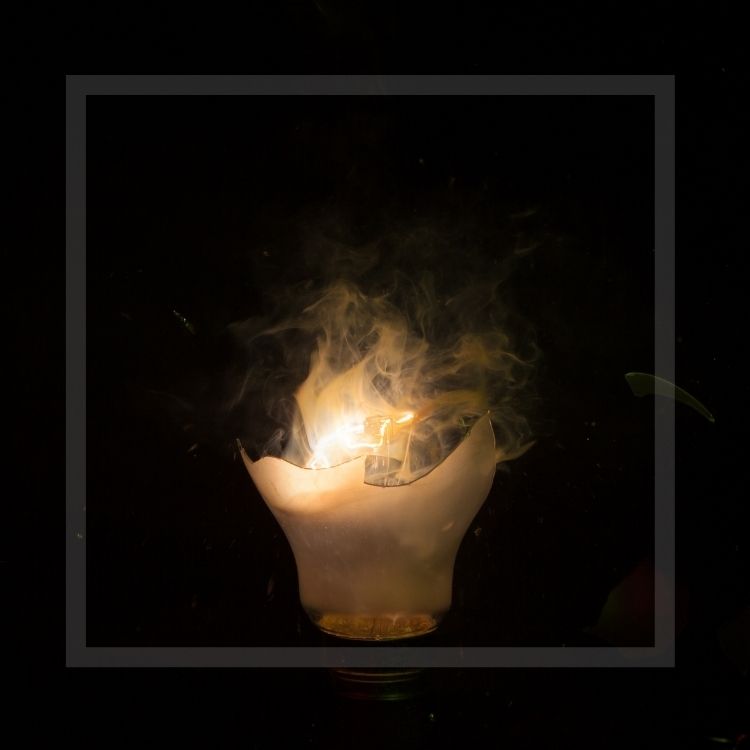We offer a wide range of services for that fresh look, or just maintenance or updates to keep your home functioning and safe. Regardless of the size of the job, we have a craftsman that can tackle it. We offer a wide range of services for that fresh look, or just maintenance or updates to keep your home functioning and safe. Regardless of the size of the job, we have a craftsman that can tackle it.

Lighting / June 8, 2021

Lightbulbs promote visibility in homes across the globe and are the backbone of parts of the energy industry. However, sometimes these small innocuous devices become a budgetary nightmare, constantly needing to replace one or the other despite claims the bulbs should last 1,0000 hours or more. If you find you need to replace lightbulbs more often than you should, contact an electrician in Edmonton to inspect the cause. There are potentially six causes for premature burnout, and some are fire hazards.
A faulty or improperly connected bulb can burn out quickly because of intermittent voltage. For example, if you do not correctly screw the bulb into the socket, resulting in a loose-fitting bulb, causing voltage issues and premature failure. A sign of a loose connection is flickering.
You want to avoid overtightening a bulb as that can also cause voltage problems. Also, when overturning the bulb, you might inadvertently damage or bend the metal tab at the bottom of the socket, the one responsible for making the electrical connection. You can usually fix the problem by bending the tab back into position, but make sure to unplug the device or turn off the power from the breaker box.
Finally, the bulb might not have enough solder at the base to provide a strong and stable electrical connection with the tab. Without adequate solder, the bulb can cause arching, which will affect its lifespan.
Every fixture will specify the correct and maximum wattage it can handle. Using anything higher than the maximum allotted wattage will diminish the lifespan of the bulb. Additionally, using a higher wattage can cause excessive heat, presenting a fire hazard. Always acknowledge and follow manufacturer instructions.
The standard electrical outlet in North American homes is 120-volts. However, most houses have at least a couple of 220-volt outlets for appliances. If you plug a lamp into a 220-volt outlet, the voltage is too high, and it can cause a lightbulb to burn brighter and burn out sooner than expected.
If you are experiencing a similar problem but are using a 120-volt outlet, you might be experiencing electrical supply issues. You can use a multi-meter to check the outlet’s output, but it is typically best to contact a licensed electrician to inspect the electrical supply of the home.
The vibration caused by certain fixtures, like ceiling fans, can lead to broken filaments and the premature failure of lightbulbs. It is also possible the light will loosen because of the vibrations, causing flickering.
There are two potential fixes for this particular lightbulb dilemma: switch the bulb type or install rough service bulbs. Using an LED bulb can eliminate the problem because it does not use filaments. A rough service bulb is designed to handle vibrations.
Recessed lighting is a popular home lighting option, but early models were not designed to be close to insulation. In some of the earlier varieties, insulation could lead to overheating, presenting a significant fire hazard. Newer iterations had safety measures in place, typically overheating shutoffs. The newest versions can be IC-rated, meaning contact with insulation is safe. However, in the early designs, the overheating could lead to premature burnout.
Any time your home electrical is acting strangely, it is best to contact a licensed electrician. For example, when bulbs continuously fail, it can be a sign of wiring or connection issues. If there are electrical problems in your home, a fire hazard or risk is present and needs to be resolved.
If you suspect an electrical issue in your home, contact electrical repair services to inspect your property. The professionals at Handyman Connection have a proven and professional track record, putting your mind at ease.